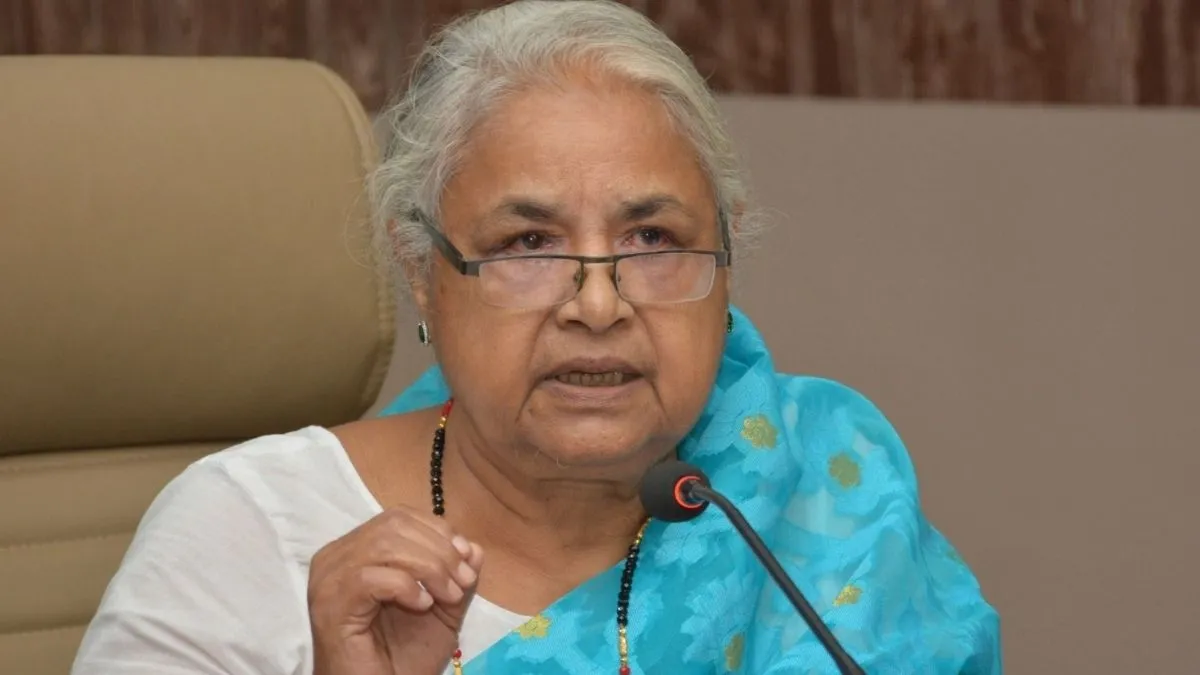- By Shivangi Sharma
- Wed, 10 Sep 2025 07:15 PM (IST)
- Source:JND
Nepal’s Gen Z protesters have nearly finalised a decision to back former Chief Justice Sushila Karki as the country’s interim leader, Nepali media reported. The group aims to present her as a neutral and credible option for talks with the military amid ongoing political unrest.
While Karki is the front-runner, other names have also emerged in discussions, including Hark Sampang of Dharan, Sagar Dhakal, Kulman Ghising, Sumana Shrestha, Kathmandu Mayor Balen Sah, and an individual referred to as ‘Random Nepali’. Karki is widely seen as the leading candidate and is likely to become Nepal’s next Prime Minister.
Youth Back Sushila Karki To Lead Nepal Transition
Youth leaders and students praised her selection. One youth said her appointment is meant to protect democracy, while a Nepali student studying International Affairs emphasised her legal expertise as crucial for maintaining law and order during the interim period.
"My immediate concern is the law and order in the country. To maintain it, the country requires a person who is knowledgeable about the law. For this, Sushila Karki is the right option," said a Nepali student.
#WATCH | Kathmandu | As former Chief Justice Sushila Karki's name comes up as one of the possible candidates to lead the new transitional government in Nepal, a youth says, "This is an interim government. We have given her name to protect democracy in our country." pic.twitter.com/KOR5Jk0zX8
— ANI (@ANI) September 10, 2025
A Trailblazing Career in the Judiciary
Born on 7 June 1952 in Biratnagar, Sushila Karki became Nepal’s first woman Chief Justice in 2016, making history in a country where women had never previously held the post. Her appointment was part of a symbolic moment when Nepal’s three top posts, President, Speaker of Parliament, and Chief Justice, were all occupied by women.
ALSO READ: How Is Nepal Coping With The Fallout Of Deadly Anti-Government Protests? See Latest Updates
Karki began her legal career in 1979 as an advocate in Biratnagar. She later became a Supreme Court justice in 2009, eventually serving as acting Chief Justice in April 2016 before her formal appointment as Chief Justice on 11 July 2016. She remained in the position until 7 June 2017.
Known for her zero tolerance on corruption, Karki gained a reputation as a fearless, independent, and principled judge. In 2017, she faced an impeachment motion filed by the Maoist Centre and Nepali Congress over alleged judicial activism. Public pressure and a Supreme Court order led to the motion being withdrawn.
Education And Personal Life
Karki comes from the Karki family of Biratnagar and is the eldest of seven siblings. She completed her BA at Mahendra Morang Campus in 1972, a master’s in political science from Banaras Hindu University in 1975, and a law degree from Tribhuvan University in 1978.
She married Durga Prasad Subedi, a former Nepali Congress youth leader known for his involvement in political activism, including a historic aircraft hijacking during protests against the Panchayat regime.
ALSO READ: Poland Suspends Flights, Shuts Airports As Russian Drones Breach Airspace Amid Ukraine Strikes
Legacy And Political Prospects
During her tenure, Karki earned acclaim for her integrity, independence, and commitment to justice. Her appointment as interim leader would mark a continuation of her public service, this time in a political role.

